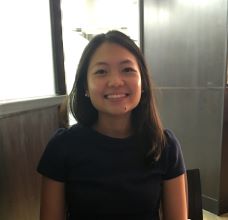
I first heard about the opportunity of a clinical secondment at the Translational Research Exchange @ Exeter (TREE) from an email advertisement in June 2018, which was also highly recommended by clinical colleagues who were currently pursuing their doctoral studies at the University of Exeter. At this time, I was in a purely clinical training job, but was due to embark on a one year “out of programme for research” (OOPR) placement with the Exeter Inflammatory Bowel Disease (IBD) pharmacogenetics team shortly. My aim for the year was to undertake a dedicated period of research to acquire new laboratory and data analytical skills as well as to broaden my academic experience, which would aid in my future career goals of practising academic medicine. This clinical secondment opportunity seemed to be just what I needed at this early stage in my clinical academic training, and I knew I had to find out more!
I contacted both Chrissie Walker, the centre manager of TREE, as well as Prof Willie Hamilton, the head of the scheme, who kindly answered my numerous queries about my background and suitability, and provided great encouragement and support for my application. Following a tense interview, I was very fortunate to be successfully awarded the clinical secondment! Despite my prior clinical research fellow commitments with the Exeter IBD Pharmacogenetics group, the team at TREE helped me immensely in sorting out the administrative arrangements, and 4 months into my research fellow year, I was able to move seamlessly into my 6 months clinical secondment at TREE, based in the Living Systems Institute (LSI) at the Streatham campus of the University of Exeter.
During my early research with the Exeter IBD Pharmacogenetics team, I started work on a project trying to understand why some patients with Crohn’s disease have a variable response to anti-TNF medication, which is a monoclonal antibody against the TNF receptor. My project worked with a large dataset encompassing clinical and genetic variables collected from more than 1000 patients across multiple time points, requiring a sound knowledge of data analytic skills required to fully harness the potential of this unique dataset. With absolutely no background in “coding” or data-analytics, I was slightly worried by the thought of starting from scratch, alone, not knowing where to begin, and yet having to produce results after only 6 months! Thankfully this turned out not to be the case at all (phew)!
Even before I started my secondment, Chrissie had already put me in touch with Matt Anderson, my mentor for my clinical secondment period. We scheduled a few meetings prior to me starting, and Matt helpfully explained the basics of “machine-learning”, and also directed me to a few key resources I could read up on prior to starting. During the first few weeks of my secondment, I first worked through an online e-learning resource to learn the basics of the programming software, Matlab. I then worked with Brandon Invergo, who shared his extensive experience working with R and “omic” datasets, and soon I too was able to use both these platforms to analyse my dataset. It was undoubtably a steep learning curve, but with the patient support of Matt, Brandon and the rest of the LSI team, I was comfortably performing regression analysis and building simple predictive models by the end of my secondment.
Apart from the invaluable data analytic skills I have acquired, I was also extremely grateful for the academic mentorship I received from the entire LSI team during my secondment. Working with the diverse range of academics at the LSI (including computer scientists, physicists, molecular biologists), and seeing how each brings their own unique expertise towards solving clinical problems, has given me a new appreciation of the benefits of collaborative working in clinical academia, and strengthened my desire to contribute to improvements in patient care as a clinical academic myself. I had received invaluable advice and support in my fellowship applications and interviews from Professor John Terry, Chrissie and the team, culminating in successful fellowship application to the Wellcome Trust GW4-Clinical Academic Training Programme, and I will be starting my PhD studies in September next year.
In conclusion, this clinical secondment has been an amazing and insightful experience where I have gained important data-analytic skills, received academic mentorship, been inspired by many bright and passionate academics, and been supported in my first step towards a clinical academic career. I unreservedly recommend this clinical secondment with TREE to any clinicians and academics who wish to gain the quantitative data analytic skills needed to further develop their research interests and contribute to healthcare improvements.